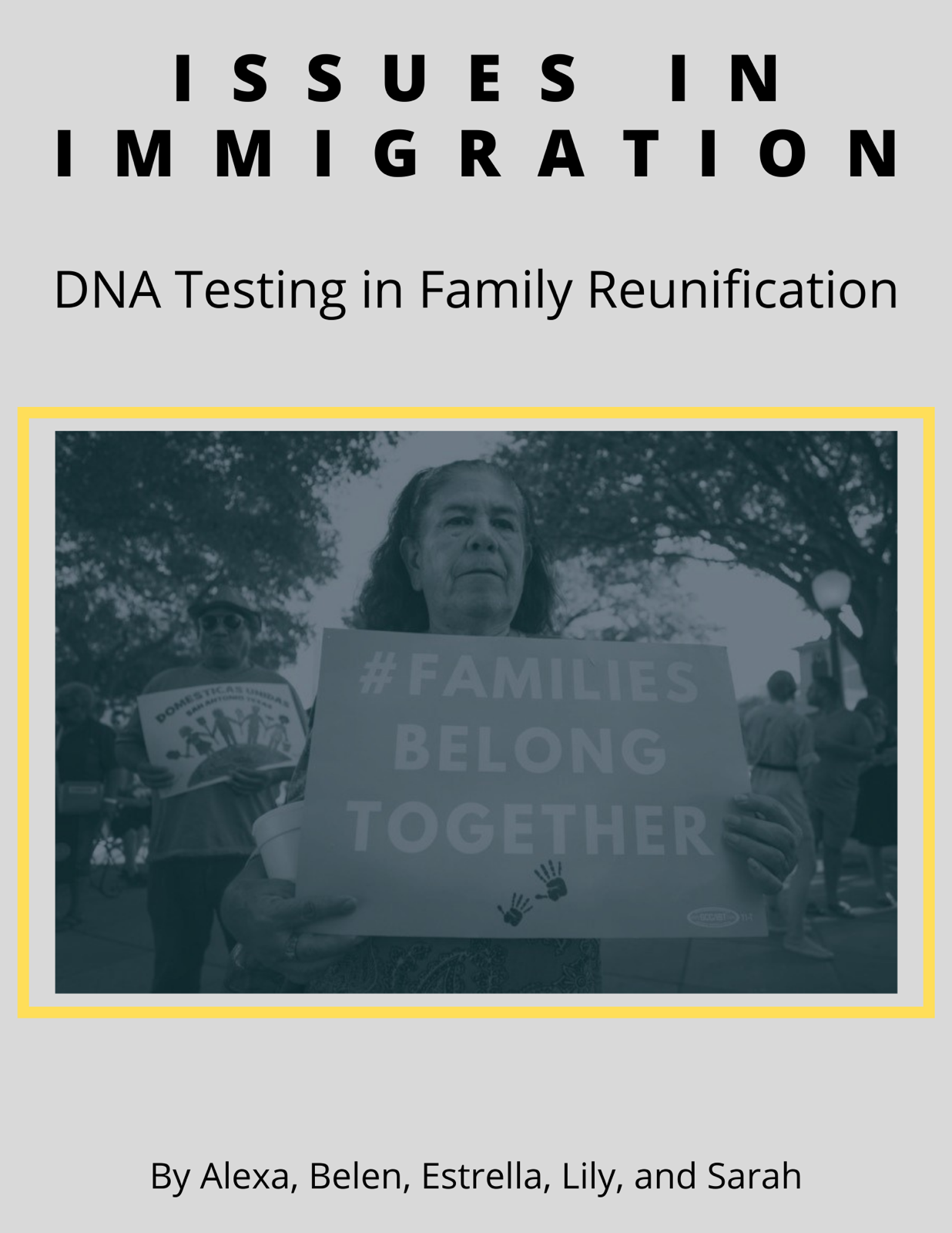DNA Testing for Family Reunification

Most Original Perspective on a Topic
By: Belen Bravo, Estrella Urena Cuevas, Alexa Greco, Lily Rosales, Sarah Rutzick
DNA testing for family reunification in US immigration cases has opened the doors for some; for others it has highlighted bioethical issues of family, autonomy, justice and fairness, benevolence, privacy, and discrimination.
The United States accepts the most immigrants of any country in the world, with about one million new immigrants arriving in the US each year (US News). One method by which people can immigrate to the United States is family reunification. By definition, family reunification is the process of uniting family members living abroad with relatives who are citizens or hold residence permits in a given country (Lee & Voigt). Roughly 70% of visas in the United States are reserved for family reunification cases, and these cases make up nearly ⅔ of total legal immigration into the country. In the year 2000, Michael D. Cronin, who was then the Executive Associate Commissioner of the United States Citizenship and Immigration Services (USCIS), announced that the United States would begin to utilize DNA testing in the family reunification process under certain circumstances (Farahany, Chodavadia, & Katsanis). Nevertheless, fraud was discovered in a particular United States family reunification program which implemented the requirement of DNA testing in some cases (Fillinger, 2018). DNA testing can help expedite the immigration process by providing an alternative means of identification if other documents are not readily available or are rejected by immigration officers (Moreno et al., 2017). DNA testing can also be useful in cases where identification has been lost, destroyed, or is simply not available in a family’s country of origin for reasons such as war, civil disturbance, lack of governmental infrastructure, corruption, and poverty (Barata et al.).While DNA testing can have immense utility in family reunification cases and has revolutionized the immigration process, we aim to critically examine where the United States stands as a leader in immigration and elucidate the array of ethical and biological issues that can arise when DNA testing intersects with immigration.
This project wins the award for the most original perspective on a topic. Many projects address issues of immigration and health, and many others address genetic counseling. This project combined the two to develop a unique perspective on problems at the border, using the distinctive approach of HBS students – Professor Kelty
comments powered by Disqus